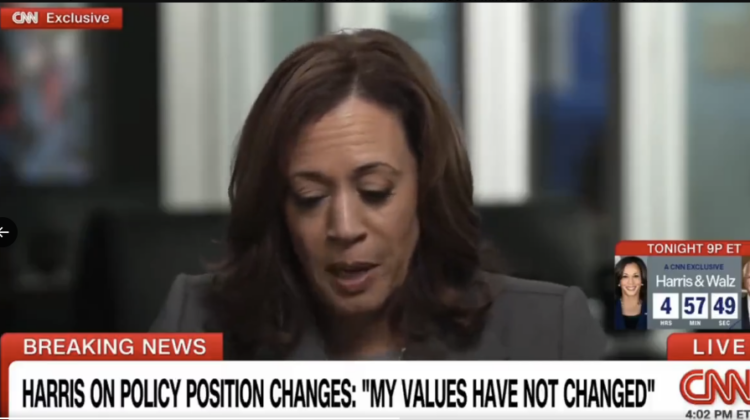We support our Publishers and Content Creators. You can view this story on their website by CLICKING HERE.

Earlier today I blogged about the ACLU questionnaire that Kamala had filled out in 2019. One of the ACLU’s biggest priorities is legalizing crime. While Kamala doesn’t agree to commit to freeing 50% of all federal prisoners, she appears to play ball on a proposal to decriminalize all drugs.
“Since drug use is better addressed as a public health issue (through treatment and other programming), will you support the decriminalization at the federal level of all drug possession for personal use?”
Kamala’s campaign checked the ‘Yes’ box which it didn’t for other questions it couldn’t commit to.
The response (which reads like Kamala herself writing it) begins with legalizing marijuana but then concludes with “and throughout my career I have supported treating drug addiction as a public health issue, focusing on rehabilitation over incarceration for drug-related offenses. Both of my Back-on-Track programs, made it a priority to connect individuals with substance abuse treatment as part of diversion and re-entry programming, in addition to employment.”
What that gibberish means is that Kamala pushes ‘diversion’ programs. In New York and other cities, diversion programs became a revolving door that led to the endless crime wave we’re in now.
Kamala had a front row seat to that during her own experiment with trading prison time for courses.
Alexander Izaguirre was enrolled in ‘Back on Track’: a Kamala program to expunge felony convictions for criminals in exchange for attending some classes. Izaguirre, who had already mugged another woman, was picked for the program by Kamala. Even while he was enrolled in the program, the illegal alien thug mugged another woman, and then rammed her with a car, fracturing her skull.
And Kamala’s proposal to go along with the ACLU and decriminalize drugs was tried in Oregon.
In 2019, 280 people died of a drug overdose in Oregon. Fatalities rose every year after, more than tripling by 2022, when 956 died. And last year, even more people died, according to preliminary data. Each month the number has been higher than the previous year, reaching 628 in June. The state is still compiling data for 2023, but if the trends continue, the total would reach 1,250 deaths from an overdose.
“On average, more than 90 Oregonians die every month from overdoses.”
Kamala’s proposal would not only do that to America, it would cripple the ability for federal prosecutors to go after organized crime and cartels.
Imagine overdose deaths in America quadrupling.

 Conservative
Conservative  Search
Search Trending
Trending Current News
Current News 





